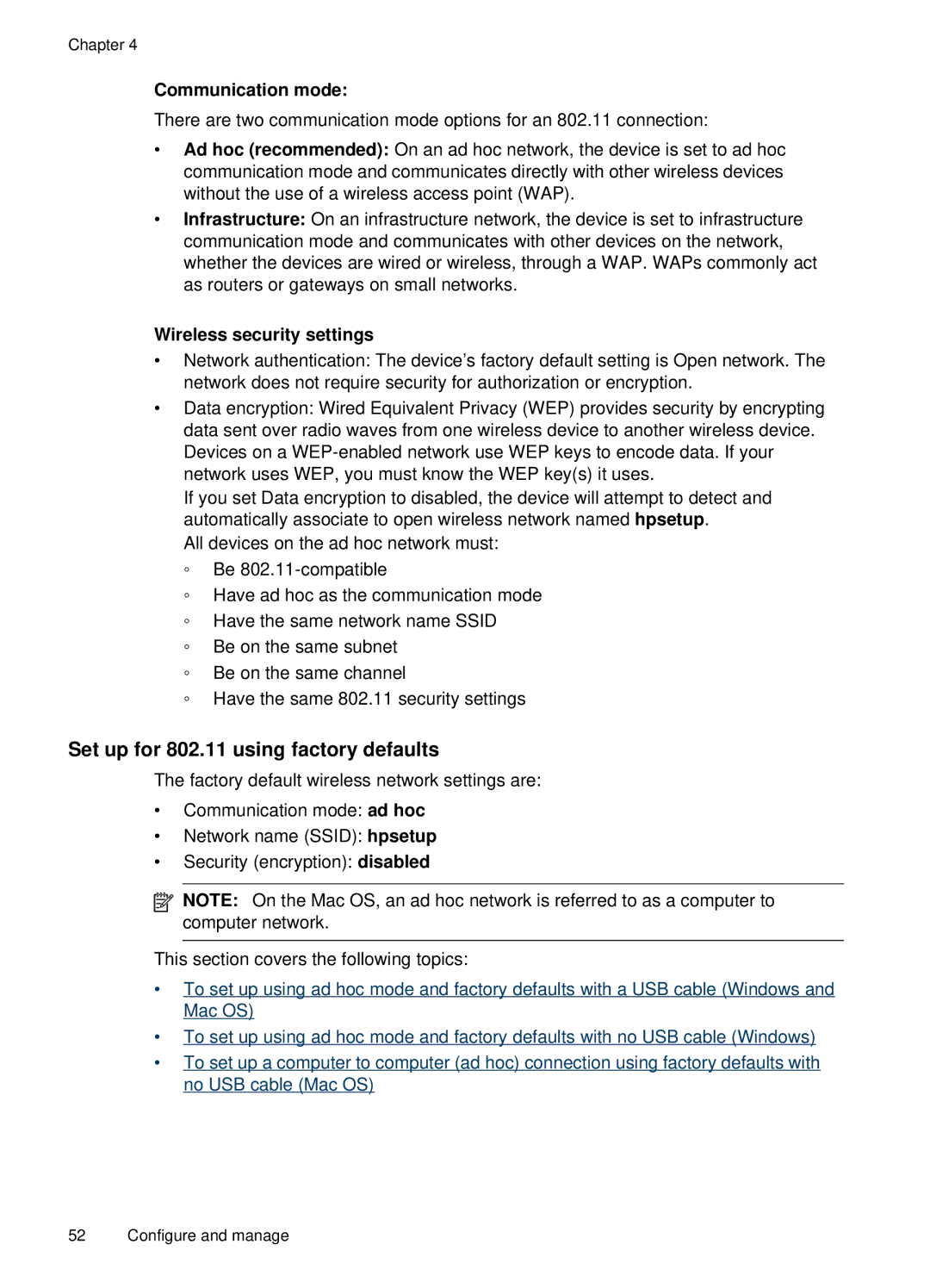Chapter 4
Communication mode:
There are two communication mode options for an 802.11 connection:
•Ad hoc (recommended): On an ad hoc network, the device is set to ad hoc communication mode and communicates directly with other wireless devices without the use of a wireless access point (WAP).
•Infrastructure: On an infrastructure network, the device is set to infrastructure communication mode and communicates with other devices on the network, whether the devices are wired or wireless, through a WAP. WAPs commonly act as routers or gateways on small networks.
Wireless security settings
•Network authentication: The device’s factory default setting is Open network. The network does not require security for authorization or encryption.
•Data encryption: Wired Equivalent Privacy (WEP) provides security by encrypting data sent over radio waves from one wireless device to another wireless device. Devices on a
If you set Data encryption to disabled, the device will attempt to detect and automatically associate to open wireless network named hpsetup.
All devices on the ad hoc network must:
ƕBe
ƕHave ad hoc as the communication mode
ƕHave the same network name SSID
ƕBe on the same subnet
ƕBe on the same channel
ƕHave the same 802.11 security settings
Set up for 802.11 using factory defaults
The factory default wireless network settings are:
•Communication mode: ad hoc
•Network name (SSID): hpsetup
•Security (encryption): disabled
![]() NOTE: On the Mac OS, an ad hoc network is referred to as a computer to computer network.
NOTE: On the Mac OS, an ad hoc network is referred to as a computer to computer network.
This section covers the following topics:
•To set up using ad hoc mode and factory defaults with a USB cable (Windows and Mac OS)
•To set up using ad hoc mode and factory defaults with no USB cable (Windows)
•To set up a computer to computer (ad hoc) connection using factory defaults with no USB cable (Mac OS)
52 Configure and manage
